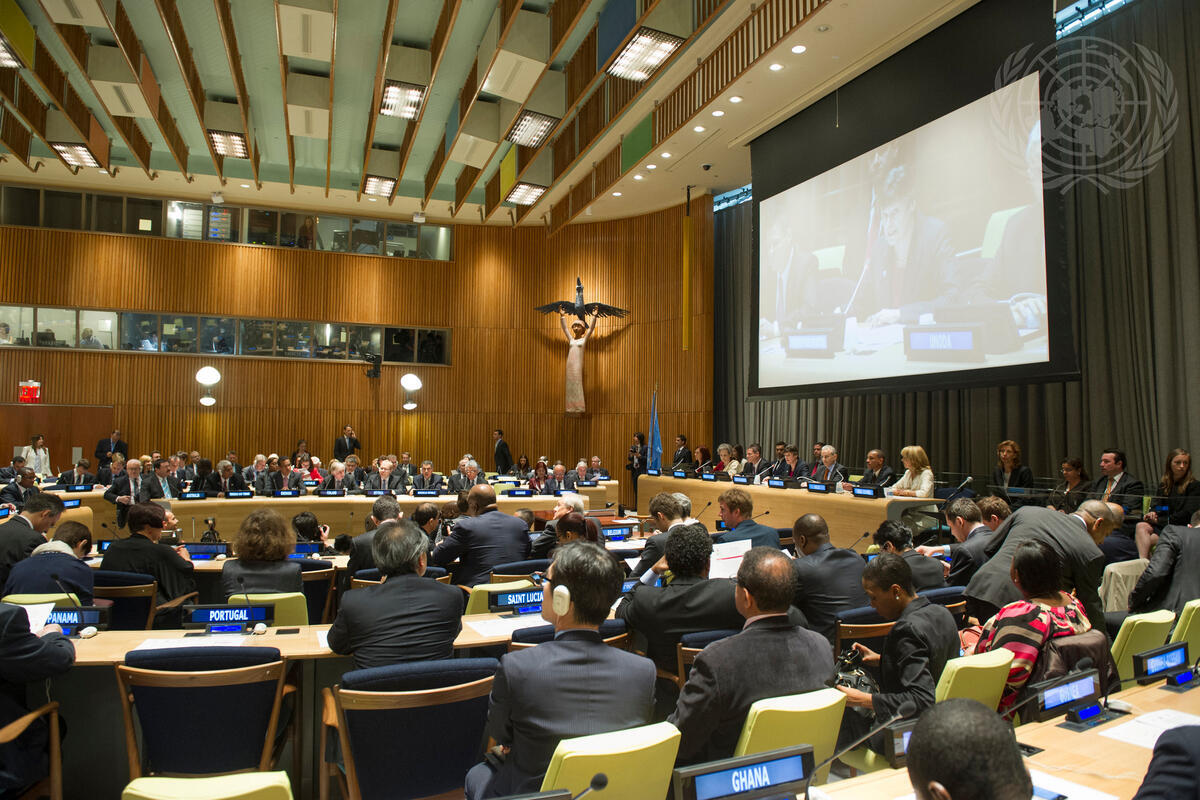
Diplomacy Needs Preparation

“Before anything else, preparation is the key to success.” – Alexander Graham Bell
Preparation is crucial for many undertakings in life. As you prepare for a Model UN conference, you should focus your research on three substantive areas: the United Nations system, your assigned country and your assigned committee topics and your country’s position on them. While this seems like a daunting amount of research, you have a number of resources at your disposal to prepare you to be in the room where it happens.
The UN System
At the very top of your research list should be to gain an overall understanding of the United Nations System, how it works, and how the conference you are attending aims to simulate the organization’s work. By gaining a better understanding of the United Nations as a whole, you will be able to see how the work of your committee fits into the larger picture.
Conferences often publish materials to help you get a basic understanding of the UN. This is a great place to start your research, and to get an understanding of the rules and procedures that will be used to move debate forward (that kind of preparation is a topic for another essay).
Understanding the United Nations System is also crucial for seeing how your committee’s work fits into the larger picture. While you are here, you can start with The AMUN Accords article overview of the United Nations, and continue reading about the General Assembly, Security Council, or Economic and Social Council (three of the most-common simulation types) as well.
Finally, it’s important to see how this work is put into action. The United Nations provides great resources for the latest news on its work.. The website UN News provides daily articles on the UN’s work and that of the international community. The UN Wire is alo a great resource to gain daily briefs on the happenings of the international community. These resources will help you to gain a better understanding of the current events in the UN and the international community.
Your Country
Before you delve into the topics within your committee, it is important to have an understanding of the UN Member State or Observer State you will be serving as the distinguished representative of. There are several resources that will help you build this understanding. The United Nations produces the World Statistics Pocketbook, which “is an annual compilation of key economic, social, and environmental indicators. Other sources include sites such as the World Factbook (produced by the United States’ Central Intelligence Agency) or the country profiles published by the BBC.
You may find yourself asking what are the important things to know about your country? To start, focus on your country’s population, geography, social and cultural structure, alliances and trade partners, and governmental system. By discovering these points, you will gain a better understanding of your country’s position on the topics at hand, and its involvement with the international community.
Your Country and Committee
Now that you have the background for the UN System and your country, it’s time to focus on the agenda at hand within the committee. The conference will publish an agenda that has specific topics for discussion within the committee. Within these topics, you will want to answer three broad questions: What has the UN done on this issue in the past? What is the UN considering now or in the future? And what are the major debates or disagreements among Member States about this topic? To answer these questions, you will want to start with the most recent resolution or resolutions on the topics. You can start here for resolutions from the General Assembly and resolutions from the Security Council. You can also access the more advanced UN Official Document System (ODS). You should also broaden your resources outside of the UN. These can include news articles, non-governmental organizations, think tanks, and scholarly work about the topic in question.
You will need to consider what your country’s position is on the agenda items. Taking a look at a country’s permanent mission to the UN. To check if your country has one, this list of United Nations Member States is a great place to start. You will also want to take a look at the voting record on GA resolutions to get an idea of how your country has reacted to certain topics or ideas. Finally, Internet search engine queries on your country plus the topic area can yield helpful glimpses into your country’s position. You also can utilize the research you completed on your country to infer how certain actions will affect it.
Building from Here
You have your research, now what? In order to utilize your work effectively, you need to have it organized and accessible. Many representatives favor binders (digital or physical) to have the most important documents on hand. Others have documents that contain the highlighted points for use in speeches and caucusing. Whether digitally or physically, having your research organized is crucial for success. When it is time to step into the room where it happens, your preparation puts you in a place to make the most of your experience.
Keep Up With The Accords
More to read
The AMUN Accords is a premier resource for fact-based Model United Nations simulations. We are always looking for new contributors. Want to write for the AMUN Accords? Check out out the submission guidelines and then get in touch!




